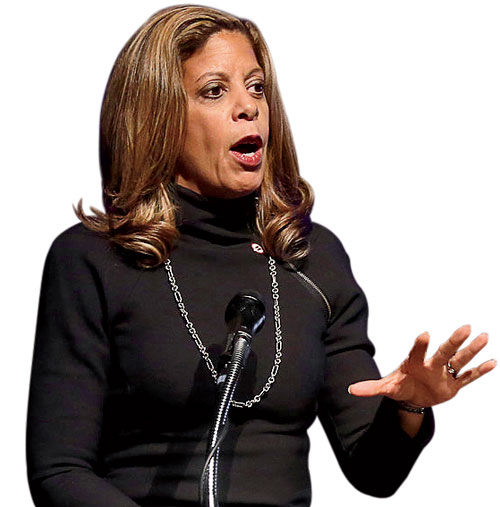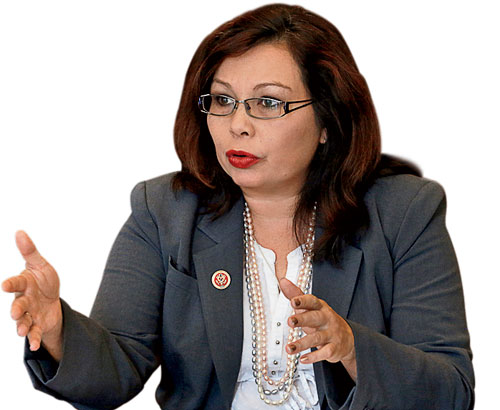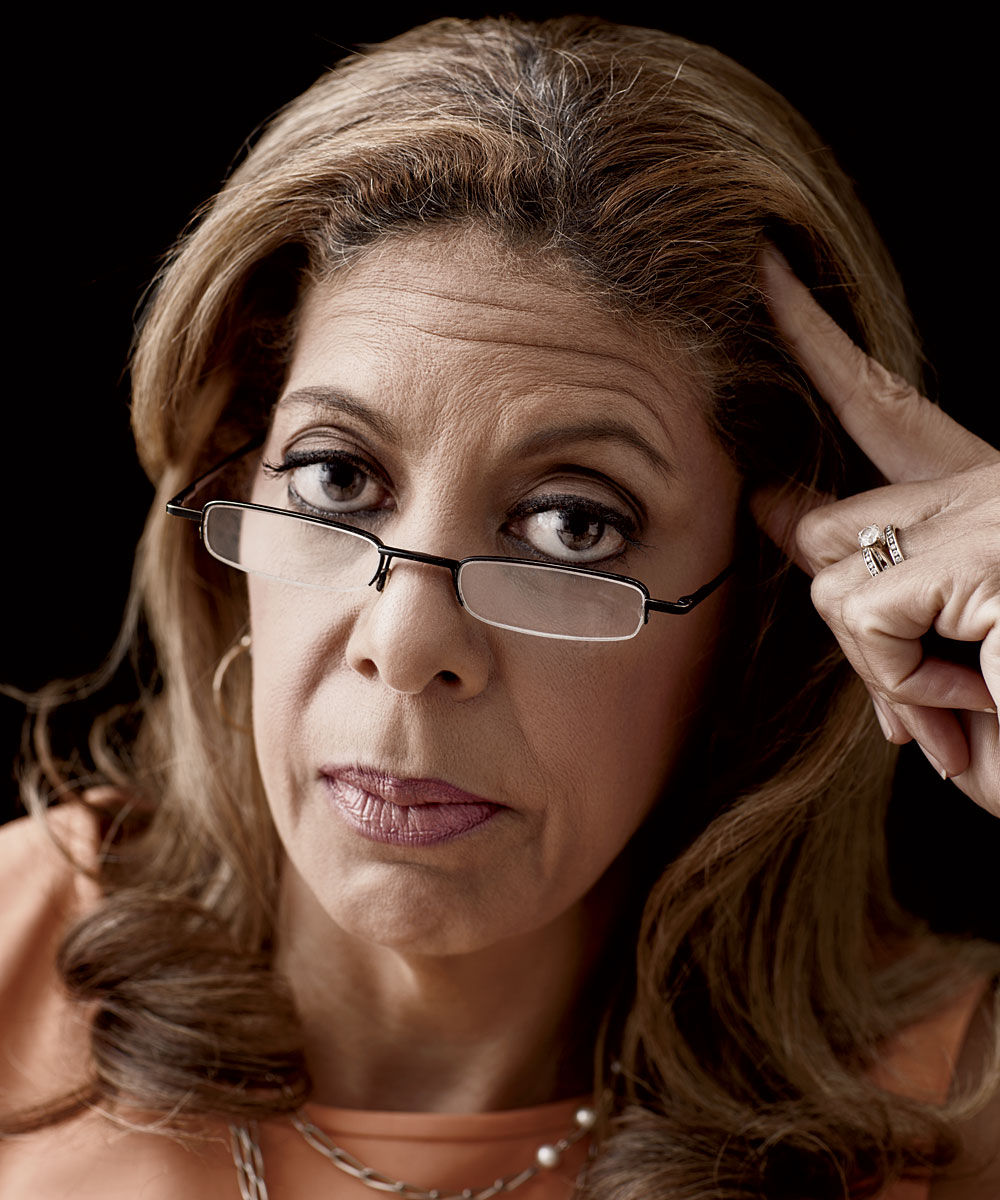It surprised many people in July when the Democratic Senatorial Campaign Committee endorsed two-term congresswoman Tammy Duckworth in the U.S. Senate race. For one thing, the DSCC doesn’t typically back a Senate candidate in an Illinois primary. But it’s not just the endorsement that has key members of Chicago’s black leadership up in arms. The DSCC never even interviewed Andrea Zopp, the former chief of the Chicago Urban League and an African American, who announced her candidacy in May. And that snub could lead to a much tighter race than first anticipated.
You can see why the DSCC might latch on to Duckworth, 47, as a dream candidate. The first-term U.S. representative from Hoffman Estates is an Iraq War veteran and the first Asian American woman elected to Congress from Illinois. She’s also the first disabled woman in the House, having lost both legs and the use of her right arm in 2004 when a rocket-propelled grenade hit the helicopter she was copiloting. But Zopp, 58, is no slouch. A Harvard-educated South Sider by way of Rochester, New York, she has worked as a state and federal prosecutor and was a corporate counsel before helming the Urban League, an advocacy group for Chicago’s black community. All that’s missing from her résumé is elected office.
In a statement shortly after the endorsement, Zopp decried the DSCC’s “total insensitivity to Chicago [and] African-American women.” Black leaders in town rallied to her side. Jesse Jackson wrote in a letter lambasting the DSCC’s move, “Ms. Zopp is in the community she represents. She deserves respectful treatment.”
Among other heavyweights in her corner: Ariel Investments CEO John Rogers Jr., Ariel president Mellody Hobson, Woodlawn Organization chief Leon Finney, and Chicago Public Schools board president Frank Clark. Kwame Raoul, who holds Barack Obama’s state Senate seat, says Zopp is more qualified for the U.S. Senate than Obama was when he ran in 2004 (though Obama did have seven years of experience in the state Senate). Zopp also has the support of Cook County board president Toni Preckwinkle, who, the Sun-Times’ Michael Sneed reported, pressured Cook County Democrats not to endorse anyone in the March 2016 primary, translating into a big local boost for Zopp.
Public Policy Polling had Duckworth leading Zopp by a mile, 59 versus 10 percent, in July. But pundits suspect that the DCSS slight could galvanize black Chicagoans to get out the vote for Zopp like they did for Obama in 2012. In that election, 69.5 percent of the black population in Illinois voted, compared with just 55.7 percent of white residents. “This started out as a DSCC coronation ceremony for Duckworth,” says David Yepsen, director of the Paul Simon Public Policy Institute. “I think it could easily backfire. You don’t want to disrespect the African American community in a primary.”
Kent Redfield, professor emeritus of political science at the University of Illinois, says there’s already a generalized sense of “frustration and anger, alienation” among black Chicagoans, who make up 32 percent of the city’s population. Though not on the general public’s radar yet, the endorsement snub could become a talking point in the campaign: “It can translate into a sense that our community needs someone who understands them and can take those issues to the Senate,” Redfield says.
When I interviewed Zopp in August—her first sit-down since she announced her candidacy—few of her answers didn’t somehow speak to race. When I asked about Black Lives Matter, she said it raised a “critically important” concern. (Zopp has two biracial biological daughters and a black adopted son.) She described the difficulty of “raising African American boys in this country.”
It’s still too early in the campaign to know exactly how Duckworth and Zopp will make their case to voters, black or otherwise. At presstime, they had not yet hit the hustings, but don’t expect clear differences on issues when they do. Both women are left-of-center progressives, and both support Obama and Hillary Clinton. But Zopp repeatedly told me she would tackle an urban agenda, which is where she and Duckworth start to diverge. From her years as a prosecutor and head of the Urban League, Zopp says, she has “not intellectual but hands-on experience” with streets “awash in guns and violence,” inner-city unemployment and job creation, and criminal justice reform. Duckworth, a veterans’ advocate and a member of the House Armed Services Committee, touts many of the family and small-business-related issues that also motivate Zopp, but she brings a passionate international perspective.
One factor that could work against Zopp: Two other African Americans plan to run and could split the black vote in the primary. Cook County Commissioner Richard Boykin filed his statement of candidacy August 17, and former NFL player and state senator Napoleon Harris entered the race on September 2.
Also not helping her cause: the fact that as a candidate she is still largely unknown. And she has to answer for her vote to close 50 schools while she was a CPS board member, which Paul Green, director of Roosevelt University’s Institute for Politics, predicts will be used to bloody her. (Zopp sent her children, now 23, 22, and 19, to CPS schools, which should earn her back a few points.) Yepsen speculates Zopp might be “playing the longer game” and that she’ll run an exemplary campaign and graciously concede to Duckworth. Then, he says, she’ll look ahead to 2020 when Senator Dick Durbin’s term is up. Perhaps Durbin, now 70, will decide to retire. “Zopp would be a natural for next time,” Yepsen says.
Maybe. But Zopp has never been a “next time” kind of woman.
War Chests
Both benefit from influential backers, but Zopp has some catching up to do on campaign funds.

Andrea Zopp
$671,0001
Notable donors:
- Former Northwestern University president Henry Bienen
- Michelle Obama’s former chief of staff Susan Sher
- MacArthur Foundation president Julia Stasch

Tammy Duckworth
$2,646,0002
Notable donors:
- Political strategist David Axelrod
- Newsweb CEO Fred Eychaner
- Billionaire and philanthropist Jennifer Pritzker



